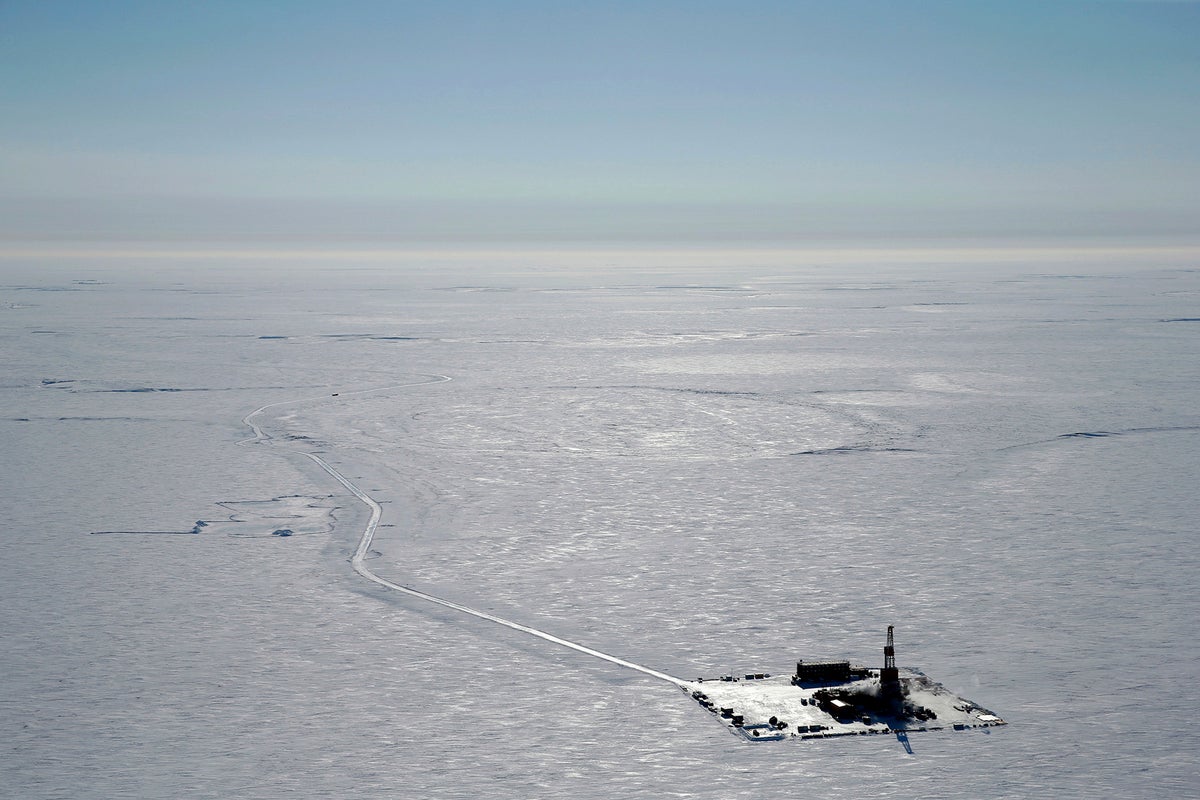
The Biden administration has said it is approving the major Willow oil project on Alaska's petroleum-rich North Slope – a move that drew quick condemnation from environmentalists, who said it flies in the face of the Democratic president's pledges.
It came a day after the administration said it would bar or limit drilling in some other areas of Alaska and the Arctic Ocean.
The Willow approval by the Bureau of Land Management would allow three drill sites, which would include up to 199 total wells. Two other drill sites proposed for the project would be denied.
Project developer ConocoPhillips has said it considers the three-site option workable, and “the right decision for Alaska and our nation”, in the words of company chairman and chief executive Ryan Lance.
Houston-based ConocoPhillips will relinquish rights to about 68,000 acres of existing leases in the National Petroleum Reserve-Alaska.
The order, one of the most significant of interior secretary Deb Haaland's tenure, was not signed by her but rather by her deputy Tommy Beaudreau, who grew up in Alaska and has a close relationship with state legislators.
She was notably silent on the project, which she had opposed as a New Mexico congresswoman before becoming interior secretary two years ago.
Climate activists were outraged that Mr Biden greenlighted the project, which they say puts his climate legacy at risk.
Allowing the drilling plan to go forward would also break Mr Biden's campaign promise to stop new oil drilling on public lands, they say.
However, administration officials were concerned that ConocoPhillips' decades-old leases limited the government's legal ability to block the project and that courts might have ruled in the company's favour.
Monday's announcement is not likely to be the last word, with litigation expected from environmental groups.
The Willow project could produce up to 180,000 barrels of oil a day, create up to 2,500 jobs during construction and 300 long-term jobs, and generate billions of dollars in royalties and tax revenues for the federal, state and local governments, the company said.
The project, located in the federally designated National Petroleum Reserve-Alaska, enjoys widespread political support in the state.
Alaska Native state legislators recently met with Ms Haaland to urge support for Willow. Senator Lisa Murkowski, (R-Alaska), said the decision was “very good news for the country”.
“Not only will this mean jobs and revenue for Alaska, it will be resources that are needed for the country and for our friends and allies,” Ms Murkowski said.
“The administration listened to Alaska voices. They listened to the delegation as we pressed the case for energy security and national security.”
Fellow Republican Senator Dan Sullivan said conditions attached to the project should not reduce Willow's ability to produce up to 180,000 barrels of crude a day. But he said it was “infuriating” that Mr Biden also moved to prevent or limit oil drilling elsewhere in Alaska.
Environmental activists who have promoted a StopWillow campaign on social media were fuming at the approval, which they called a betrayal.
“We are too late in the climate crisis to approve massive oil and gas projects that directly undermine the new clean economy that the Biden administration committed to advancing," said Earthjustice president Abigail Dillen.
“We know President Biden understands the existential threat of climate, but he is approving a project that derails his own climate goals.”
Christy Goldfuss, a former Obama White House official who is now a policy chief at the Natural Resources Defence Council, said she was “deeply disappointed” at Mr Biden's decision to approve Willow, which NRDC estimates would generate planet-warming greenhouse gas emissions equivalent to more than one million homes.
“This decision is bad for the climate, bad for the environment and bad for the Native Alaska communities who oppose this and feel their voices were not heard,” Ms Goldfuss said.
Anticipating that reaction among environmental groups, the White House announced on Sunday that Mr Biden will prevent or limit oil drilling in 16 million acres in Alaska and the Arctic Ocean.
The plan would bar drilling in nearly three million acres of the Beaufort Sea – closing it off from oil exploration – and limit drilling in more than 13 million acres in the National Petroleum Reserve.
The withdrawal of the offshore area ensures that important habitat for whales, seals, polar bears and other wildlife "will be protected in perpetuity from extractive development", the White House said in a statement.
City of Nuiqsut mayor Rosemary Ahtuangaruak, whose community of about 525 people is closest to the proposed development, has been outspoken in her opposition, worried about impacts to caribou and her residents' subsistence lifestyles.
The Naqsragmiut Tribal Council, in another North Slope community, also raised concerns with the project.
But there is “majority consensus” in the North Slope region supporting the project, said Nagruk Harcharek, president of the group Voice of the Arctic Inupiat, whose members include leaders from across much of that region.







